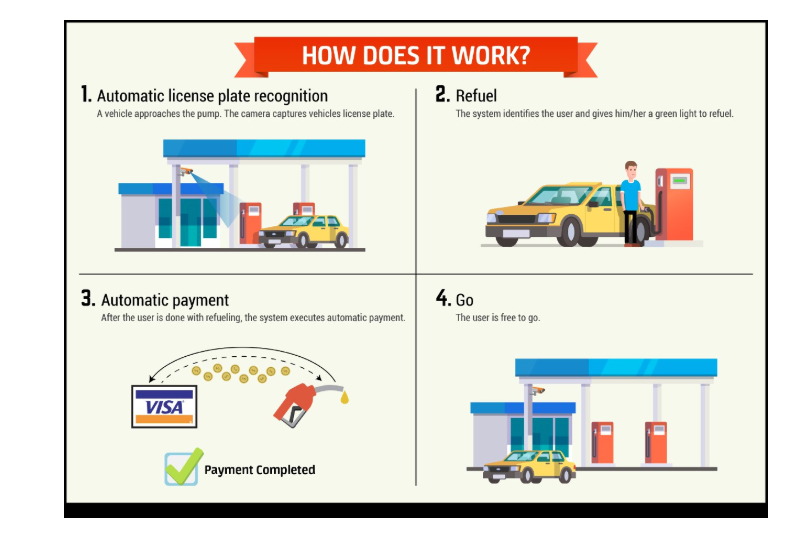February 13, 2019 - It’s always encouraging to hear about Croatia’s young innovators, and today, we have yet another story to bring you - this time, out of Split. Meet EazyOil.
EazyOil is an automated payment system for gas stations based on the automatic OCR number-plate recognition. The idea was borne by a team of four highly skilled engineers, including Josip Balić (hardware specialist), Matko Đipalo (experienced web developer), Filip Krišto (web and IoT developer), and Duje Roje (embedded developer), who were brought together after winning a ‘hackathon’ contest. It didn’t take long for these four innovators to realize that they might be on to something, pushing them to pursue a new kind of payment system in Split.
So, how does it work?
“You drive towards the pump and our camera detects the vehicle’s license plate. After refueling you are automatically charged aaaand you are free to go. No need to go inside or even reach for your wallet.
It’s time-saving. It’s carefree. It’s easy. Just refuel and Go.
It is the next step toward full automation. The system reduces clutter and simplifies the payment process. It also keeps the gas station running 24/7 without supervision,” reads the description on the EazyOil website - and they even break it down for you in simpler terms here.

You can also watch a video released by EazyOil earlier this month explaining what they're all about.
But what we found most interesting in the video was their comparison of Croatian startups versus ones in Estonia, outlining just how challenging it is for Croatian startups to succeed at all.
Namely, Croatia has a population of 4.2 million and Estonia 1.3 million. Of the 149,052 legal entities in Croatia, 145,312 are micro and small companies (97.5%). Out of 69,027 legal entities in Estonia, 68,855 are micro and small companies (99.8%). In Croatia, there are 472,619 employees in these companies, while in Estonia, there are 326,264.
In 2017, 15,189 new businesses were opened in Croatia, and in Estonia that same year, 21,947.
With a VAT of 25%, Croatia is second in the EU. Estonia, however, has a VAT rate of 20%, which ranks them 21st in the EU. In Croatia, there is double taxation of profits, and 500 parafiscal charges for entrepreneurs. In Estonia, there is flat tax reform - 20% of income tax and 20% of profit tax - and profit tax is 0% if profits are reinvested
Even more interesting is that Croatia is ranked 74th on the Global Competitiveness Report, while Estonia is 1st. In the Index of Economic Freedoms, Croatia ranks 92nd, while Estonia ranks 7th. Estonia is also ranked first on the startup scene in Europe, with 145% annual growth in employment. Croatia is nowhere to be found. Best yet, Estonia is the first country in the world to introduce electronic citizenship by which you can launch and run a business in Estonia entirely online from any part of the world!
Since January 1, 2019, an utterly anti-entrepreneur law on contributions has been in force in Croatia, which stipulates that every director of a company is obliged to pay a minimum of 22,824 kuna to the state annually as the legally prescribed minimum contribution base.
With that in mind, how are Croatian startups meant to survive at all?
Bravo to the EazyOil team for highlighting the issues entrepreneurs face in Croatia, while still pushing to fight the system to develop something of their own.
To read more about business in Croatia, follow TCN's dedicated page.


